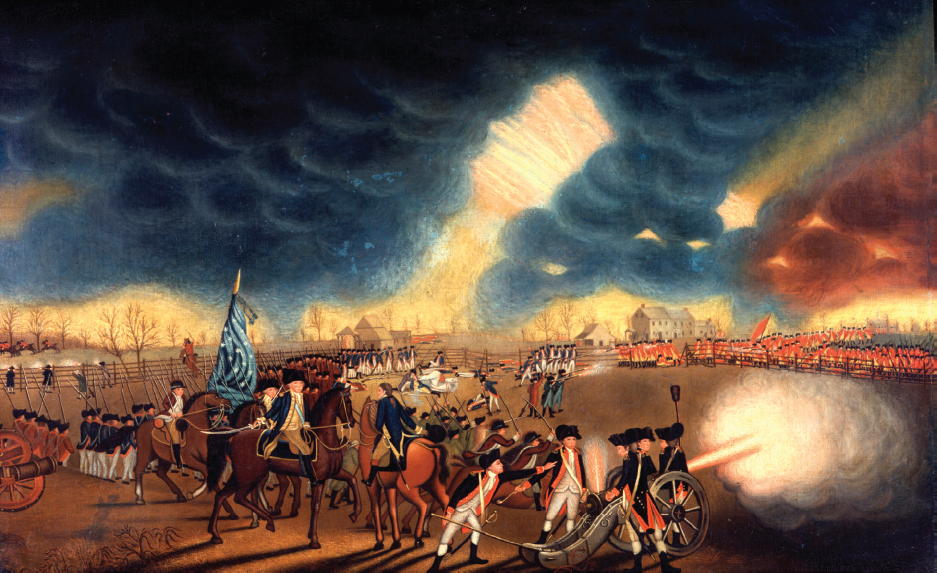America’s History: Printed Page 185
America: A Concise History: Printed Page 163
America’s History: Value Edition: Printed Page 160
Armies and Strategies
Thanks in part to General Howe, the rebellion survived. Howe had opposed the Coercive Acts of 1774 and still hoped for a political compromise. So he did not try to destroy the American army but instead tried to show its weakness and persuade the Continental Congress to give up the struggle. Howe’s restrained tactics cost Britain the opportunity to nip the rebellion in the bud. For his part, Washington acted cautiously to avoid a major defeat: “On our Side the War should be defensive,” he told Congress. His strategy was to draw the British away from the seacoast, extend their lines of supply, and sap their morale.
Congress had promised Washington a regular force of 75,000 men, but the Continental army never reached even a third of that number. Yeomen, refusing to be “Haras’d with callouts” that took them away from their families and farms, would serve only in local militias. When the Virginia gentry imposed a military draft and three years of service on propertyless men — the “Lazy fellows who lurk about and are pests to Society” — they resisted so fiercely that the legislature had to pay them substantial bounties and agree to shorter terms of service. The Continental soldiers recruited in Maryland by General William Smallwood were poor American youths and older foreign-born men, often British ex-convicts and former indentured servants. Most enlisted for the $20 cash bonus (about $2,000 today) and the promise of 100 acres of land.

Molding such recruits into an effective fighting force was nearly impossible. Inexperienced soldiers panicked in the face of British attacks; thousands deserted, unwilling to submit to the discipline of military life. The soldiers who stayed resented the contempt their officers had for the “camp followers,” the women who made do with the meager supplies provided to feed and care for the troops. General Philip Schuyler of New York complained that his troops were “destitute of provisions, without camp equipage, with little ammunition, and not a single piece of cannon.”
The Continental army was not only poorly supplied but was also held in suspicion by Radical Whig Patriots, who believed that a standing army was a threat to liberty. Even in wartime, they preferred militias to a professional fighting force. Given these handicaps, Washington and his army were fortunate to have escaped an overwhelming defeat.
IDENTIFY CAUSES
Question
What factors made it difficult for the Continental Congress to create an effective army?